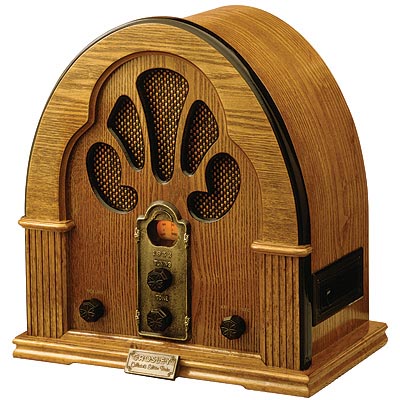The Pros and Cons of Subscribing to Satellite Radio

Satellite radio poll
Do you have satellite radio?
One typically will not find a twenty-year old with a portable satellite radio in his or her pocket, but when I was a long-haired college student, I did. Having studied communications and worked in radio, I was always fascinated with it, and so I tried it. My initial rationale for subscribing to XM in 2006 was being able to listen to baseball games wherever I went, but at the end of my one year, I let it lapse out of boredom. In 2010, I decided to try it again so that I would have some real variety to which to listen at work, and again so that I may listen to sports, but it did not even work in my building. Within a few months, I had cancelled it again.
I routinely get letters from the company begging me to return, and I keep getting the itch, but I typically can’t decide. As I’ve discovered in two previous runs, subscribing for satellite radio has definite pluses and minuses.
Pros to subscribing to satellite radio:
* It works almost everywhere, and can even be portable. In my years of having had satellite radio, the only service outages I can remember were isolated and brief. Clearly, like any electronic device involving sending or receiving transmissions, there are certain places where it simply will not work. If you’ve ever tried using a cell phone in an elevator, basement, or wooded area off in the middle of nowhere, you will know that sometimes it’s difficult to do. Likewise, satellite radio has its deadspots or areas where the geography or layout is not favorable for reception. These are generally few and far-between, however.
You have options beyond installing a satellite radio in your car or home as well. Back in 2006, I purchased a portable satellite radio that went with me wherever I went, and worked fine in most places. This is particularly useful because it can also be stationed in the car, at home, at your office, or anywhere else you may be.
* There is a large selection of formats available. At a cursory glance of the channel lineups for the satellite radio providers, you may encounter music genres you never knew existed. You may also marvel at how specific the content range is on many stations. The array of available programming is about as broad as if you ordered satellite television and signed up for one of the bigger packages. Even the pickiest of music listeners will probably find a channel or two (at least) to their liking, but of course, it is not limited to music, though this is an option for those only interested in paying for it. News, talk, sports, and international content are also some of the formats available for your consumption.
* Customer service is friendly. In all of my dealings with the customer service end of the satellite radio company, I found the staff to be friendly and down-to-earth. This is the sort of thing that should not be underrated.
* The broadcast quality is usually very good. “Quality” is in terms of actual transmission feed; satellite radio is normally a very clear sound, without the hisses of AM radio and static that one might find when listening to an FM station just a little bit outside the normal listening area. Satellite radio is typically what I would term as CD-quality audio.
* Music channels are ad-free. This is not to say that there are never pauses in the music for satellite radio promos, but you will not hear commercial advertising. In terrestrial radio on certain music stations, breaks can be relatively long and you may only get three or four songs before a four-minute break; on satellite, you get much more music per hour.
Cons to subscribing for satellite radio:
* It’s another expense. When I first signed up for satellite radio during my college days, a friend of mine said to me “How can you pay for radio?” I cancelled satellite radio the first time because I was looking to save money – and I cancelled satellite radio the second time because I was looking to save money. The first time, I got a yearly subscription, which takes a lot of money out of the pocket of a poor college student and I wasn’t willing to re-up, and the second time, when I left my previous job, I was looking to cut costs and $18 a month adds up. There is also an activation fee involved, as well as the cost of purchasing the radio itself.
Now, there are different packages of channels with different prices, and that was roughly as high as it goes, but satellite radio is one of those first-thing-to-go sorts of things when you want to save some money. If push came to shove and you needed to clear out a little cash in your monthly budget, it’s a lot easier to give up satellite radio than it is, for example, to give up $15-$20 on your food budget.
* It can seem superfluous. Speaking of first-thing-to-go, it’s not just about money; it’s also about necessity. There is some great content on satellite, and I enjoyed listening to it, but you’ll survive without it. In the age of personal media like the iPod, it can seem unnecessary and expendable.
* Some setups involve a lot of wires and equipment. Remember how I said satellite radios can be portable? While that’s great, it can come at a price. With the setup I purchased in 2006, I had enough cords and wires from external antennae to be able to wrap around me a dozen times over. If it hasn’t changed much since, it can get to be a tangled mess and, at times, a hassle to transport the equipment.
Obviously, when taking the radio around in your pocket, you wouldn’t need anything extra, but the portable antennae built-in to the radio itself are usually less effective than the provided external ones for home and car.
* Some of the music content is too obscure. On many of the music stations I listened to, which usually involved some form of alternative or new rock, I found some of the playlist selections to be strange. Perhaps it was just me, but I had never heard of a lot of the bands, and I wasn’t particularly fond of most. Sometimes you would get more mainstream content, but then you would also get those mainstream bands’ most obscure songs – which, as you would soon learn, were obscure for a reason. I started to find myself becoming unimpressed with the selection, particularly when I had playlists of things I like sitting on my computer.
This is not a problem everyone will have, especially if one is a lover of all sorts of music, but for someone on the pickier side, it can get boring.
Satellite radio can be an interesting, engaging medium with many different genres, voices, and views that you may never have heard before. There are lots of things to like about it, like its range of content and widespread availability, but cost is a drawback. Those interested in satellite radio should, of course, make the decision for themselves if they would like to purchase it. If they do, and are willing to bear the cost and deal with some other nuisance issues like wires, they will be rewarded with a nice listening experience. As for me, I have to keep reminding myself that I've already cancelled it twice, so I'm unsure if the third time would be the charm, but you never know.









